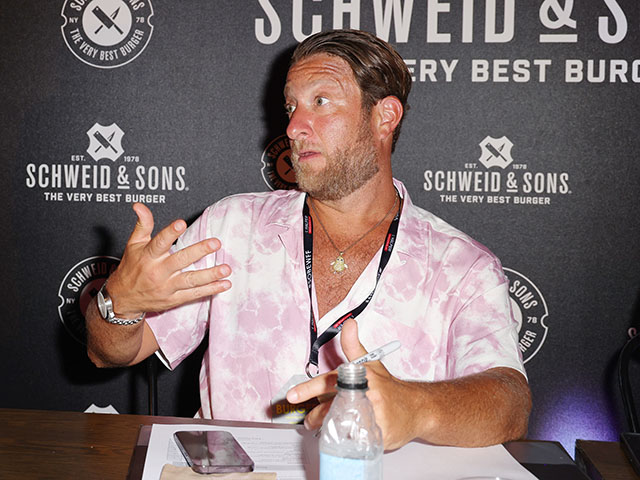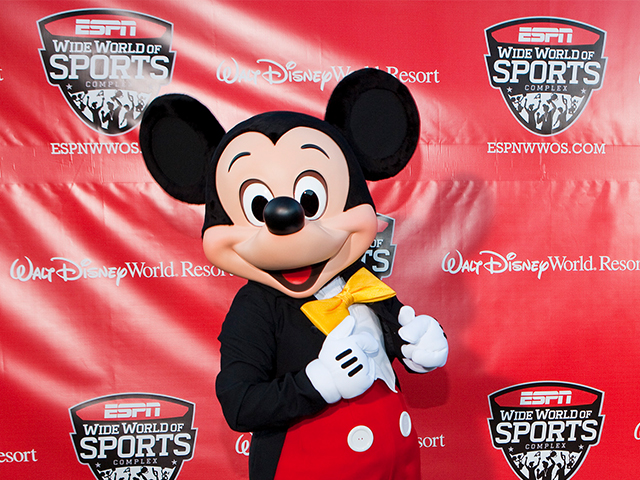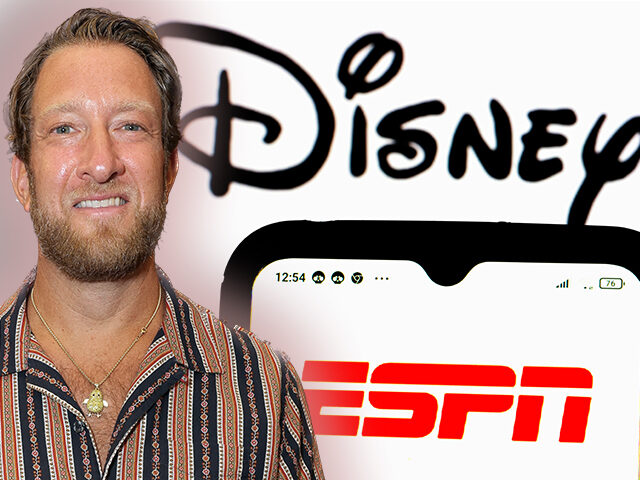El Presidente Has Control of His Stool Again
Barstool Sports co-founder Dave Portnoy announced on Tuesday evening that he had bought back Barstool from Penn Entertainment, the casino operator and online gambling company that had purchased it for around $550 million in two transactions beginning in 2020.
“For the first time in a decade, I own 100 percent of Barstool Sports,” Portnoy said in an “emergency” press conference.
(Note: “Emergency” is in quotations there because putting up online videos called emergency press conferences is one of Portnoy’s frequent schticks. They are rarely, if ever, actually press conferences or emergencies.)
Penn Entertainment issued a press release on Tuesday disclosing more details about what happened. The company has basically given Barstool Sports back to Portnoy for free. In exchange for 100 percent control of the company, Portnoy has agreed to some non-compete and other restrictive covenants that were not detailed in the press release. No money or equity appears to have exchanged hands in the sale of Barstool, although it is safe to assume that Portnoy has agreed to take on whatever contractual liabilities (employment agreements), legal liabilities, and lease obligations Barstool has incurred.
A Mostly Empty Upside for Penn
Penn is entitled to fifty percent of the proceeds of any future sale or monetization event of Barstool Sports, the company said. This looks more like a face-saving term rather than something expected to generate actual economic benefits. Penn would look pretty dumb for giving away Barstool for nothing if Portnoy were able to sell it for a substantial sum in a couple of years. So, the deal allows Penn to capture a good part of the upside of any future sale.
Of course, a future sale is very unlikely. In the first place, the fact that the deal requires Portnoy to hand over half the proceeds of a sale to Penn disincentivizes him from working for a sale (or public offering). If Penn were expecting or even hoping for a payout from a future sale, they would structure the deal as a liquidation preference with a step-down, where they get paid a lower percentage for proceeds beyond a certain amount. That would give Portnoy more of an incentive to maximize the value of Barstool.

Dave Portnoy at the South Beach Wine and Food Festival on February 24, 2023, in Miami Beach, Florida. (Alexander Tamargo/Getty Images)
Perhaps the best way of thinking about this part of the deal is that it gives Penn the ability to repurchase Barstool Sports in the future at a discount. If Barstool Sports turns out to be very valuable and attractive to buyers in the future, Penn could buy it at half the price of anyone else. Penn has a perpetual option on Barstool, in other words.
More importantly, Portnoy says he’s never selling.
“I am never going to sell Barstool Sports,” Portnoy said in his emergency press conference. “I’ll hold it till I die. And when I die I’ll give it to Dan or Kevin. Who’s ever left standing.”
The Squeaky Mouse Gets a Deal
The bigger part of last night’s announcement was that Penn has struck an exclusive online sports betting deal with Disney’s ESPN. Penn will rebrand the Barstool Sportsbook as “ESPN Bet” for the upcoming 2023 NFL season. It gets an exclusive trademark on ESPN sports betting for 10 years. It is also getting access to ESPN’s fantasy sports database, it’s 25 million direct subscribers, its website’s 105 million monthly unique digital visitors, and its audience of 370 million on social platforms.
In exchange, Penn has agreed to pay $150 million a year to ESPN. There’s an option to exit the deal after year three if market share goals are not reached. But assuming those are not too ambitious, this means that ESPN will receive $1.5 billion in cash over the term of the deal. ESPN is also getting $500 million in warrants, plus bonus warrants if market share thresholds are exceeded.
A few years ago, ESPN was looking for a similar deal with a $3 billion price tag, but that never came about. Over the past few years, the online sports betting business has grown and gained legal and social acceptance across much of the United States. Ironically, this may have made a tie-up with ESPN less valuable because the biggest brands—DraftKings and FanDuel—are already very established. They do not need ESPN’s brand.
The market’s reaction to the deal was to bid up Penn shares by around 10 percent. DraftKings shares fell by around nine percent. Shares of Ireland-based Flutter Entertainment, which owns FanDuel, fell by 6.1 percent in London. In other words, investors think this was a good deal for Penn that has the potential to allow it to capture market share from its bigger competitors. Analysts are not yet convinced, with many leaving their ratings and price targets on both Penn and DraftKings unmoved after the announcement.

Mickey Mouse walks the red carpet at the relaunch of the ESPN Wide World of Sports at Walt Disney World Resort on February 25, 2010, in Lake Buena Vista, Florida. (Matt Stroshane/Getty Images)
“We see a constructive risk-reward for why PENN is entering this deal, however, we are also increasingly convinced that the product and tech barriers DraftKings (see report) and FanDuel are creating make market share moves increasingly difficult,” analysts at Bank of America said.
Perhaps the most overlooked part of the deal is what this does for ESPN. The division of Disney has been struggling to find a replacement for the steady stream of revenue once provided by fees from cable companies. ESPN takes in revenue from selling advertisements, including advertisements for sports betting, but ad dollars are notoriously unreliable and volatile. From an investor perspective, it is far better to have a guaranteed source of revenue, which is what the Penn deal provides.
If Disney were looking to sell ESPN—which it should be—this is exactly the kind of deal it would want to strike because it gives potential buyers a baseline for valuation.

COMMENTS
Please let us know if you're having issues with commenting.